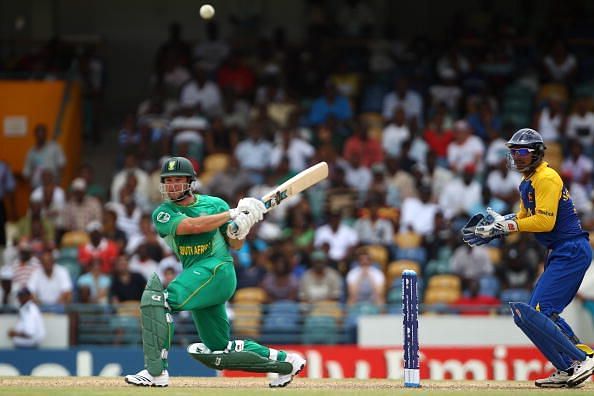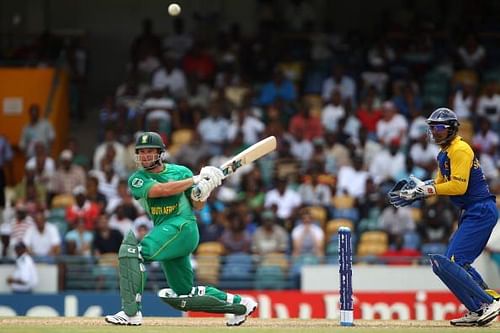
SK Flashback: Rain dooms South Africa’s fate in the 2003 World Cup

When things don’t work out, particularly in crucial sporting encounters, the blame is often attributed to luck, choking or simply carelessness. That idea keeps haunting the Proteas over and over again in the World Cup.
Three days earlier the South Africans were cheering on Sri Lanka, who beat the West Indies narrowly and kept the hosts’ hopes alive in the tournament. Ironically, South Africa now had to beat the Lankans in order to qualify for the Super Six.
Sri Lanka, on their part, played under protest against the ICC Events Technical Committee’s interpretation of the qualification criteria for the Super Six. Their grievance was that in the match that New Zealand forfeited to Kenya, "...both teams gained an unfair advantage on the net run-rate because only match points were awarded and the overall run-rate was not affected. It appears that teams could give an excuse and forfeit a match and gain on the net run-rate."
There was certainly an intriguing battle in store.
Marvan Atapattu was in sublime form. Neither Gary Kirsten’s direct hit from mid-on to run out Sanath Jayasuriya, nor the regular fall of wickets bothered him. Atapattu drove three deliveries for four in Shaun Pollock’s second over, once straight and then successively through cover.
The classy veteran Aravinda de Silva joined him at 90 for three in the 23rd over. They scored at nearly a-run-a-ball in their quest for a good run-rate, which was all they needed.
Atapattu brought up a chanceless hundred, his ninth in one-dayers. After reaching a delightful fifty, De Silva hooked Makhaya Ntini to the top tier of Kingsmead, and hoisted Andrew Hall over long-on for another six. The 152-run stand virtually put the team into the Super Six.
The two fell within a run of each other, Atapattu for 124 off 129 balls with 18 fours, and De Silva for 73 off 78 balls with 6 fours besides the two sixes.
South Africa had a smooth take-off in the chase. Herschelle Gibbs and Graeme Smith put on 65 runs in 11 overs, with lanky paceman Dilhara Fernando being smashed for 14 off his solitary over.
But spin, often the bogey of the Proteas, was their undoing again. De Silva sent back left-handers Smith and Kirsten. Jayasuriya accounted for Jacques Kallis and Boeta Dippenaar, while Muttiah Muralitharan picked up the vital wicket of Gibbs.
South Africa were reeling at 149 for five. After 33 overs, Sri Lanka were assured of a berth in the Super Six on run-rate alone.
Skipper Pollock helped Mark Boucher add 63. And then came the defining moment.
With rain in the air, Boucher was given to understand that the victory target at the end of the 45th over, as per the Duckworth-Lewis method, would be 229. Muralitharan bowled that fateful over, and 13 runs came off the first five balls. Boucher had cracked a six, and a wide ball ran away to the boundary.
The rain was heavy now and play was certain to be stopped at the end of the over. The score was 229 and Boucher thought they had won. He played the last delivery defensively.
But to their horror, the South Africans learnt that this score was enough only to tie the match. The fancied hosts were knocked out in the first stage of the tournament.
This was third time unlucky for them. In 1992, the quirky rain-rule had put them out in the semi-final. In the 1999 semi-final and now in 2003, tied matches ended their campaign.
Pollock was devastated: “It’s hard to describe…..being knocked out of the World Cup by a tie for a second successive time. It’ll take a long time sinking in.”
South Africa forgot to do their sums properly right through. Remember the opening match? You do pay for your carelessness in the end.
Sri Lanka: 268 for 9 wickets (50 overs), South Africa: 229 for 6 wickets (45 overs) (CWC 2003)
Follow Sportskeeda for all the updates on ICC World Cup live score, schedule, news, points table, live scores, most runs, most wickets and fantasy tips.